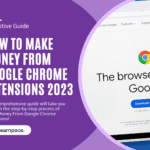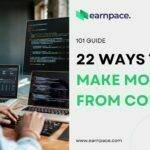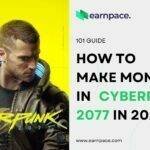Ever wondered how to make money on 99designs without a formal design degree or agency job? Whether you’re a self-taught illustrator or a side-hustle logo creator, 99designs gives freelancers access to global design work. In this guide, you’ll learn how to build a strong profile, win design contests, land clients, and start earning anywhere from $299 to over $1,000 per project.
We’ll walk you through everything from setup to scaling so you can turn your creativity into consistent income. Whether you’re looking for part-time gigs or a full-time design career, 99designs can help you get there.
By the end of this post, you’ll know exactly how to grow your profile, win high-paying contests, and pitch for direct work on this platform—without burning out or wasting hours on unpaid efforts.
Key Takeaways
- No degree needed, just skill and strategy – You don’t need a diploma to succeed, just strong visuals, a polished profile, and persistence.
- Earn $299–$1,299 per project – Contest prizes range widely, and top-tier designers can secure premium rates through direct work.
- Contests AND direct clients – Work your way up through contests, then transition into one-on-one projects that offer recurring income.
- Portfolio + reputation = visibility – A winning portfolio and great client reviews boost your ranking and increase your chances of being invited to work.
- Fees apply, but loyalty pays off – The more work you do, the lower your platform fees become.
How to Make Money on 99designs?
Making money on 99designs is achievable but not effortless. The platform’s competitive nature means you’ll often be up against dozens of designers, especially in contests. Only the winner gets paid, so it can take time and consistent effort to start earning.
That said, 99designs is structured to reward skilled, committed users. Once you build a solid portfolio and earn a few wins, the opportunities expand—especially through direct client work, which is far more profitable and less crowded than contests.
Designers who stick with it can scale their income significantly by moving to top-tier status, where they pay lower fees and attract premium clients. There’s a clear path to better earnings, but it takes skill, time, and strategy to get there.
For those willing to play the long game, 99designs can be a powerful and rewarding freelance income source.
What do you need to get started?
All you need is a free 99designs account, a decent design portfolio, and access to design software like Adobe Illustrator or Canva Pro. No degree is required, but you must submit work samples during registration. Your chances improve dramatically with a niche (logos, packaging, book covers, etc.), consistent branding, and a complete profile featuring testimonials and past work. Once verified, you can enter contests or accept direct project invites.
How much money you can make on 99designs?
Beginners can earn around $299–$599 per contest win, while top-tier designers may earn up to $1,299 per project through contests or direct client work. 99designs charges a platform fee (5%–20%) based on your client tier, meaning your net earnings grow as your reputation improves.
For example, a mid-level designer who wins a $599 contest might take home approximately $510 after f
ees. According to CareerKarma, high performers supplement contest earnings with long-term direct clients, many making over $2,000/month. Some freelancers even convert one-off projects into full-time design gigs.
16 Proven Methods to Make Money on 99designs
Whether you’re a new designer building your portfolio or a pro seeking high-paying clients, here are 16 proven ways to consistently make money on 99designs in 2025.
1. Join and Win Design Contests
The most popular way to make money on 99designs is by entering and winning design contests. Contests allow clients to receive multiple design options from various freelancers, then choose a winner to pay. These briefs often include logos, business cards, packaging, or web designs.
This method is ideal for new users looking to build a portfolio, gain reviews, and understand the platform. Even though only the winning design gets paid, many designers use contests to learn what works and establish their style. As you win more, clients are more likely to invite you directly to higher-paying work.
Contests come with clear budget tiers: Silver ($299), Gold ($599), Platinum ($1,299). As a beginner, focus on lower-tier contests with less competition. With practice, you’ll increase your win rate—and your income.
How to join and win contests on 99designs?
- Create a designer account and upload 3–6 quality samples
- Verify your profile to be accepted into the designer community
- Browse contests in your niche (logo, packaging, etc.)
- Carefully read client briefs and brand guidelines
- Submit a thoughtful, unique design before the first deadline
- Respond quickly to feedback and make necessary revisions
- Upload final files when you win
- Request reviews to boost your profile for future contests
Quick tip: Focus on “blind contests”—they hide entries from others, improving your chances of winning.
2. Accept Direct Client Projects

After building your reputation on 99designs, you’ll gain access to direct client projects. These are private job invitations sent by clients who found you via contests or the designer search. Direct projects eliminate competition and offer better control over timelines and pricing.
With this method, designers can charge hourly or fixed rates. The process is much smoother—you’ll discuss the scope, submit proposals, and work one-on-one with clients. This is where consistent income begins. Long-term client relationships often start here, making it a critical method for scaling your freelance business.
The best part? Platform fees are lower for repeat clients—just 5% if they’ve worked with you before.
How to earn through direct projects on 99designs?
- Optimize your profile for search visibility
- Win at least 1–2 contests to attract attention
- Make it easy for clients to invite you (open calendar, clear rates)
- Respond quickly to inquiries with clear proposals
- Discuss project scope, deliverables, and timelines up front
- Set milestones for larger projects to secure partial payments
- Submit files through the platform for protection
- Ask for client reviews to build credibility
Quick tip: Always deliver final files via 99designs to ensure payment security and positive reviews.
3. Sell Logo + Brand Identity Packages
Logo + brand identity packages are high-demand services on 99designs, often combining logo design with business cards, letterheads, social media covers, and brand guidelines. Clients prefer bundled services, especially startups and new businesses.
You can offer these as fixed-price packages through the 99designs service marketplace. They’re popular because clients don’t need to open a contest—they can book your package directly. This method reduces time spent pitching and allows for streamlined, scalable income. Top designers regularly earn over $1,000 per branding project.
This also boosts your value as a full-service designer rather than just a logo creator.
How to sell logo + brand packages on 99designs?
- Create 3–5 customizable branding templates
- Upload them to your portfolio or packages section
- Set clear pricing, scope, and delivery time
- Offer revisions and editable files to attract buyers
- Promote your niche (e.g., minimalist, retro, eco-friendly branding)
- Win contests related to logos to show credibility
- Use branding keywords in your profile and packages
- Upsell other services like website banners or icons
Quick tip: Set a clear project description and include mood boards to attract more package buyers.
4. Build a Niche Design Portfolio
One powerful method for increasing income is focusing on a niche—for example, designing only food packaging, book covers, or feminine logos. 99designs allows you to tailor your portfolio to specific industries or styles, helping you stand out and attract direct invitations.
Clients search for designers using filters like style, industry, or deliverables. By owning a niche, you show up higher in those searches and become the go-to expert in that space. Niching also makes your pitches and designs more refined—clients can trust you’ve done similar work before.
It also reduces contest time—you know the look, language, and layout clients want.
How to build a niche portfolio on 99designs?
- Pick 1–2 target industries (e.g., fitness, beauty, tech)
- Create mock designs if you lack past work
- Tag and title your portfolio items properly
- Use relevant industry terms and keywords in your descriptions
- Avoid posting generalist work unless it aligns
- Update thumbnails with polished, branded visuals
- Highlight niche wins and reviews
- Share your niche expertise in proposal messages
Quick tip: Use your 99designs profile banner to visually reflect your niche instantly.
5. Offer Custom Design Packages

In addition to logos or branding, you can build custom design packages that offer fixed services—such as social media kits, merchandise design, or product mockups. These packages show up in the 99designs service marketplace and allow clients to book work without launching a contest.
It’s a lower-pressure way to monetize your skills. You decide what’s included, how much it costs, and how long it takes. You can even offer rush pricing or bundle add-ons to boost order value.
This method helps you generate passive leads while focusing on contest or client work.
How to create custom design packages on 99designs?
- Choose 1–3 services you can deliver efficiently
- Bundle items clients frequently request together
- Set flat prices with clear scope and turnaround time
- Add a FAQ to clarify revisions or delivery format
- Include portfolio examples that match the package
- Add keywords to your package title (e.g., “T-shirt design for bands”)
- Keep pricing competitive but sustainable
- Offer discount coupons to repeat buyers
Quick tip: Packages with 5+ reviews are prioritized in search—ask for feedback after each delivery.
6. Join the 99designs Pro Designer Program
The Pro Designer Program is for elite-level designers who consistently deliver exceptional work. Once accepted, you gain access to higher-tier clients, more exclusive project invites, and increased platform visibility.
To qualify, you must apply and be reviewed based on your past work, ratings, and communication. Pro designers often land large brand or agency jobs. This program turns 99designs from a side gig into a full-time design career with premium earnings.
Being part of the Pro group also unlocks opportunities that aren’t available to regular-tier designers.
How to qualify and earn as a Pro designer on 99designs?
- Maintain a high win rate and 5-star reviews
- Show consistent quality in portfolio uploads
- Complete projects on time and exceed client expectations
- Apply via the 99designs Pro page when eligible
- Include industry-recognized work or big-name clients if possible
- Be responsive, clear, and professional in communication
- Accept large, complex jobs to build credibility
- Use Pro status in external marketing to attract clients
Quick tip: Use your Pro badge in your profile photo—it helps increase trust and click-throughs.
7. Upsell Clients After Contests
Even if you win a contest and deliver the project, that doesn’t have to be the end. Many top designers use the win as a way to upsell clients on additional services—like brochures, social media templates, or future rebranding.
Since clients already trust your work, they’re more likely to come back to you rather than search again. This method turns one-time payments into repeat revenue.
It’s one of the easiest and most overlooked ways to scale earnings on 99designs.
How to upsell after contests on 99designs?
- Send a thank-you message after the final delivery
- Ask if they need matching assets (e.g., business cards)
- Offer a small discount for additional work
- Suggest long-term design retainers for monthly needs
- Share a brochure or package catalog via message
- Add links to other services in your profile
- Follow up after 30 days with a friendly check-in
- Use contests as your lead funnel, not the final sale
Quick tip: Always mention your other services during the final file handover—it opens the door to more sales.
8. Promote Your Services Off-Platform

Once you’ve built a strong 99designs profile, you can drive external traffic to it from LinkedIn, Behance, or your personal website. Promoting your 99designs profile helps bypass cold outreach and lets leads see your verified reviews and portfolio all in one place.
Many freelancers use 99designs as their main conversion funnel. You build trust faster since the platform handles contracts, payments, and disputes.
This method also helps you qualify for higher tiers and get invited to more jobs.
How to promote your 99designs profile?
- Link to your 99designs profile from your social bios
- Embed portfolio samples with links on Behance or Dribbble
- Use testimonials from 99designs in your external marketing
- Write blog posts about your design process and link back
- Promote “book me” packages on Instagram or Twitter
- Add your profile to your email signature
- Ask past clients to refer others via your profile
- Use hashtags and niche keywords to increase discoverability
Quick tip: Use a short, branded username URL for easier sharing across channels.
9. Create and Sell T-Shirt Designs
99designs lets you showcase your T-shirt design skills through contests and custom packages. Many clients post apparel-related briefs, especially for music, fitness, or events. If you specialize in bold typography, illustrations, or themed merch, you can stand out fast.
Even without winning every contest, uploading strong shirt mockups can help attract clients for ongoing work, especially in fashion or print-on-demand industries.
Quick tip: Use shirt mockups in your portfolio to help clients visualize the final product.
10. Design Packaging for Consumer Brands
From cosmetics to coffee, brands constantly launch or relaunch products. These clients need high-conversion packaging—and 99designs is a go-to platform for this. If you understand dielines, labels, and shelf-appeal, packaging contests can be extremely lucrative.
Experienced packaging designers often win higher-value contests ($599–$999) and land long-term contracts with startups.
Quick tip: Mention “FDA-compliant” or “eco-friendly packaging” in your descriptions if relevant—it impresses clients in those markets.
11. Create Book Covers for Authors & Publishers

Self-published authors and indie publishers regularly run contests or request book cover packages. If you’re skilled in layout, illustration, or genre-themed design (fantasy, romance, thriller), this niche can be very profitable.
You can even offer bundled packages—print + ebook + audiobook cover—to increase value and stand out from competitors.
Quick tip: Label your portfolio pieces by genre to help authors quickly find your style.
12. Design for Nonprofits and NGOs
Nonprofits often look for logos, reports, social graphics, and awareness campaigns. Many run contests at the lower tiers ($299), but with less competition than commercial clients.
Working with these organizations builds credibility, helps you stand out, and can open the door to long-term, purpose-driven projects.
Quick tip: Add “nonprofit branding specialist” in your profile if you’ve done mission-driven work.
13. Offer Rebranding Services to Existing Clients
After you’ve worked with a client once, follow up months later to offer a brand refresh. Many small businesses need logo or identity updates every 1–2 years to stay current.
You can create a rebranding package that includes tweaks to the logo, color palette, fonts, and updated assets—at a lower price than a full redesign.
Quick tip: Keep in touch with past clients via 99designs messages or offer a “brand checkup” package.
14. Sell Social Media Kits
Clients constantly need visual content for social media—Instagram posts, Facebook headers, YouTube thumbnails. Create and sell social media kits as fixed-price packages, or offer them as upsells after a contest or project.
This is a fast-delivery service that requires minimal revision and can be done using templates.
Quick tip: Use trending formats like “carousel post kits” to attract influencers and coaches.
15. License Designs for Future Use
Some contest losers offer their designs as licensable assets (especially logos or icons) outside the winning selection. Clients can request to buy these for a lower fee.
You retain rights, can reuse unused entries, and earn passive income from past work.
Quick tip: Politely follow up with clients whose contests you didn’t win—some may want to license your version.
16. Offer Brand Guideline Documents
After a branding project, you can offer to create a full brand style guide—detailing logo usage, colors, fonts, and visual tone. Many clients don’t realize they need this until after delivery.
These documents add value and help you earn an extra $100–$300 per project.
Quick tip: Use a branded template to deliver brand guides quickly and efficiently every time.
Step-by-Step Guide to Make Money on 99designs
Starting from scratch? This step-by-step guide will walk you through everything—from setting up your profile to earning repeat income. Follow these steps to build authority, win contests, and eventually attract premium clients on 99designs.
Step 1: Create and Verify Your 99designs Account
Head to 99designs.com and sign up as a designer. You’ll be asked to upload a few samples of your work, so prepare 3–6 quality pieces in your chosen niche (logos, packaging, etc.). Once submitted, your application will be reviewed before your profile becomes active. Verification usually takes a few days.
Quick tip: Choose a strong username and profile image—they show up in search and affect click-throughs.
Step 2: Build a Niche-Focused Portfolio
Your portfolio is everything. Focus on 1–2 design niches (like food packaging or startup logos). If you don’t have client work yet, create mockups. Write clear titles, tags, and descriptions that include industry keywords to help clients find you.
Quick tip: Include at least one project labeled “minimalist logo” or “branding” for visibility in high-traffic categories.
Step 3: Start with Entry-Level Contests
Once approved, begin by entering contests—especially Silver-tier ones ($299). Read briefs carefully, submit early to get client feedback, and revise quickly. These first wins build credibility, trust, and visibility on the platform.
Quick tip: Choose “blind contests” to avoid idea copying and improve your chances of winning.
Step 4: Request Reviews from Every Client
After every contest or project, ask for a short review. Positive reviews push your profile up in search results and help you attract better-paying clients.
Quick tip: Keep your request friendly and short—most clients are happy to support designers they liked.
Step 5: Optimize Your Profile for Direct Projects
Once you’ve won a few contests, enable direct project availability. Set clear pricing, write a strong “About” section, and showcase your niche specialty. This makes it easier for clients to contact you directly without launching a contest.
Step 6: Create Fixed-Price Packages
Design packages (like “Logo + Social Kit”) are discoverable in the 99designs marketplace. Choose services you can deliver efficiently, set competitive prices, and include portfolio samples. This gives you passive exposure while you focus on other work.
Quick tip: Include FAQs in your packages to reduce back-and-forth and boost conversion.
Step 7: Apply for Top-Level or Pro Designer Status
As your experience grows, apply for top-level or Pro status. These tiers give access to exclusive clients, reduced fees, and better platform promotion. To qualify, you need strong ratings, portfolio quality, and consistent performance.
Quick tip: Use completed branding packages as proof of full-scope project success in your application.
Step 8: Retain Clients and Upsell Smartly
Every contest win or direct project is an opportunity to upsell ongoing work—like packaging variations, brochures, or social media kits. Consistent follow-up builds long-term income without relying on constant new contests.
Quick tip: Offer a small discount to past clients who return within 60 days.
Best Tips to Increase Revenue on 99designs
Want to earn more without spending more time? Strategic tweaks to how you use 99designs can significantly boost your income per hour. Start by refining your niche—specialists earn more than generalists. Clients are willing to pay extra for designers who “get” their industry and deliver fast, relevant solutions.
Use design packages and upsells to your advantage. Every logo can lead to additional work—social media kits, website headers, packaging, and more. Be proactive about suggesting add-ons after a successful project.
Also, prioritize repeat clients. They’re easier to sell to, require less education, and often lead to larger projects over time.
Quick tip: Bundle services with simple tiered pricing to increase order value and make decisions easier for clients.
Best AI Tools for Making Money on 99designs
AI tools can drastically cut your design time while improving quality. Use platforms like Adobe Firefly, Canva Pro, and Designify to generate variations, templates, and mockups. They’re especially useful for early contest submissions, where speed is key.
For image enhancement, tools like Let’s Enhance and RunwayML offer background removal, upscaling, and style transfers. Combine these with your own creativity for faster workflows and better results.
AI isn’t a replacement for skill—it’s a booster for productivity. Designers who embrace AI tools spend less time tweaking and more time delivering premium work.
Quick tip: Use AI to create first drafts, then personalize and polish for a professional edge.
Best Affiliate Platforms for 99designs Designers
If you want to diversify your income beyond client work, consider promoting design-related products or tools through affiliate programs. Ideal platforms include Creative Market, Envato Elements, Canva Pro, and Placeit. You can recommend these tools to clients or fellow designers and earn commissions per sale.
Affiliate links work well in your portfolio descriptions, external blogs, YouTube tutorials, or LinkedIn posts. This strategy helps you monetize your audience passively while still doing client work on 99designs.
It’s also a good option during slow months or between projects.
Quick tip: Only promote tools you personally use and trust—authenticity leads to more conversions.
Best Marketing Tools for Monetizing on 99designs
To stand out in a saturated marketplace like 99designs, smart marketing is essential. Use LinkedIn, Behance, and Dribbble to drive traffic to your 99designs profile. Add strategic hashtags and keywords to increase visibility.
For automation, use Buffer or Later to schedule posts showcasing your portfolio and client wins. If you have a website, integrate Google Analytics to track which traffic sources convert best.
You don’t need a full brand to market yourself—just consistent visibility, social proof, and easy-to-navigate links back to your 99designs profile.
Quick tip: Showcase client testimonials in quote graphics on social media for high-impact marketing content.
Conclusion
Making money on 99designs in 2025 is more than just winning contests—it’s about building a long-term freelance business. With the right strategy, designers can earn between $299 and $1,299 per project, retain repeat clients, and scale income over time.
You now have the roadmap: contests, direct projects, packages, upsells, and expert positioning. Start applying these methods today, and within months, you could turn your design hobby into a serious revenue stream.
Frequently Asked Questions (FAQs)
Can beginners really make money on 99designs?
Yes! Many beginners start by winning lower-tier contests or offering niche design packages. With consistency and effort, it’s possible to earn your first $299+ within weeks.
How long does it take to get approved as a designer?
Approval usually takes 2–5 days. You’ll need to upload samples and pass a basic quality review to activate your designer profile.
What kinds of projects pay the most on 99designs?
Branding packages, packaging designs, and direct client projects tend to offer the highest payouts—often between $599 and $1,299. Joining the Pro Designer program also unlocks premium opportunities.
Do you need to win contests to get clients?
No. While contests help build credibility, many clients hire directly by browsing designer profiles or through fixed-price packages.
How much does 99 designs take in fees?
For contests, fees are included in the prize. For direct projects, 99designs takes 5%–20% based on your client history and designer level. Lower fees apply as you grow.



